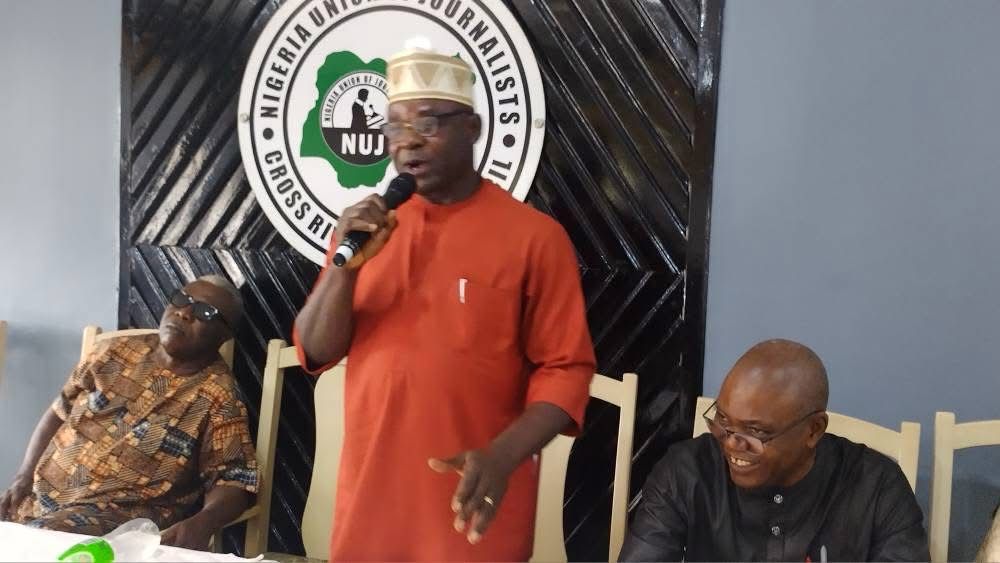From Musa Muhammad Kutama, Calabar
Veteran journalist and retired Head of Service, Dr. Timothy Ogbang Akwaji, has called on media professionals to return to their ethical foundations and reclaim journalism’s role as the conscience of the nation.
Delivering a keynote address during the 2025 Nigeria Union of Journalists (NUJ) Week in Cross River State, Dr. Akwaji challenged journalists to embrace professionalism, integrity, and responsibility in the face of growing threats to press credibility.
Speaking on the theme “Journalists and the Burden of Professionalism,” the Fellow of the Nigerian Guild of Editors (FNGE) offered practical insights rather than academic lectures, urging journalists to recommit to the core values of truth, fairness, and objectivity.
“I won’t pretend to take my colleagues back to the classroom,” he said. “We all have what it takes to practice journalism. But we must not forget the essential ingredients that make us worthy of being called members of the Fourth Estate of the Realm.”
Dr. Akwaji emphasized that journalists must serve as modulators of government power and hold public officials accountable, even when it challenges comfort or neutrality.
He stressed a return to strong reporting and accurate news writing, while adapting to evolving formats without sacrificing credibility. Warning against misinformation, especially from social media, he said: “What you see or hear may not be real. We must be cautious in reporting content that flies on social media.”
Raising concerns about the decline of investigative journalism in Cross River State, he urged reporters to dig deeper and expose wrongdoing.
He advised journalists to match their writing style with the frequency of their publications. “Daily publications can break news, but weekly or monthly magazines must offer depth — the news behind the news,” he said.
On editorial writing, Dr. Akwaji reminded that editorials are the institutional voice of a media house and must be free from personal bias. A good editorial, he said, should inform, debate, and take a clear stance on key issues.
Calling for developmental journalism, he encouraged media professionals to focus on national security, democracy, and the economy. He cautioned against headlines that inadvertently support insurgents or undermine the efforts of security forces.
Regarding democracy, Dr. Akwaji lamented that many journalists have mistaken infrastructure for democratic dividends. “The true dividends are the Rule of Law, press freedom, accountability, and institutional independence,” he said.
On the economy, he urged journalists to expose corruption rather than serve as image makers for corrupt officials. “Why should journalists become mouthpieces for those plundering our commonwealth?” he questioned.
Calling for an ethical rebirth in journalism, he decried the erosion of professional standards, where stories are often compromised for financial gains.
“Our profession is noble, so must our conduct be. We must resist being hired as attack dogs for the rich and powerful,” he warned.
As the NUJ Week continues, Dr. Akwaji’s speech stands as both a wake-up call and a motivational charge — urging journalists to reclaim their dignity, uphold the ethics of the profession, and once again become the conscience of the nation.
“Let us recalibrate,” he concluded, “and bring back those virtues of our founding fathers so that the eroding values of the pen profession can be reversed.”


